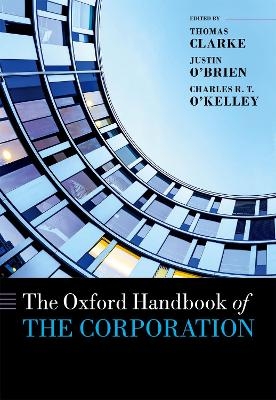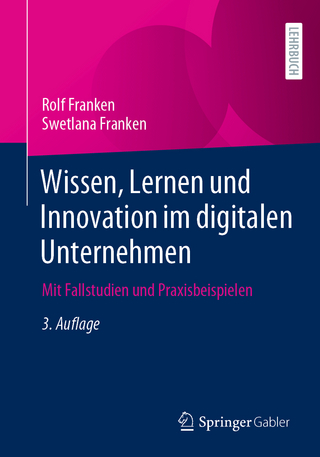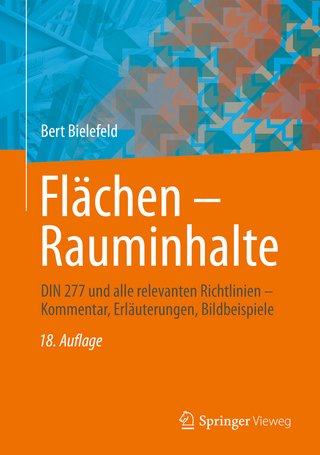
The Oxford Handbook of the Corporation
Oxford University Press (Verlag)
978-0-19-873706-3 (ISBN)
The Oxford Handbook of the Corporation assesses the contemporary relevance, purpose, and performance of the corporation. The corporation is one of the most significant, if contested, innovations in human history, and the direction and effectiveness of corporate law, corporate governance, and corporate performance are being challenged as never before. Continuously evolving, the corporation as the primary instrument for wealth generation in contemporary economies demands frequent assessment and reinterpretation.
The focus of this work is the transformative impact of innovation and change upon corporate structure, purpose, and operation. Corporate innovation is at the heart of the value-creation process in increasingly internationalized and competitive market economies, and corporations today are embedded in a world of complex global supply chains and rising state and state-directed capitalism. In questioning the fundamental purpose and performance of the corporation, this Handbook continues a tradition commenced by Berle and Means, and contributed to by generations of business scholars. What is the corporation and what is it becoming? How do we define its form and purpose and how are these changing? To whom is the corporation responsible, and who should judge the ultimate performance of corporations? By investigating the origins, development, strategies, and theories of corporations, this volume addresses such questions to provide a richer theoretical account of the corporation and its contested future.
Thomas Clarke is Professor of Corporate Governance at the University of Technology Sydney. He is the Editor of the Elements in Corporate Governance series (Cambridge University Press) and the Inaugural Sir Adrian Cadbury Scholar of the International Corporate Governance Network (ICGN). He has published over thirty authored/edited books, including Innovation in the Asia Pacific: From Manufacturing to Knowledge Economies (Springer 2018); International Corporate Governance (Routledge, second edition 2017); and the Sage Handbook of Corporate Governance (2012), together with 200 refereed articles and book chapters. Justin O'Brien is the General Editor of Law and Financial Markets Review (Taylor and Francis). He is also the author and editor of a series of books on the dynamics of financial regulation with particular reference to capital market governance, including The Future of Financial Regulation (with Iain G. MacNeil, Hart 2010), Integrity, Risk and Accountability in Capital Markets: Regulating Culture (with George Gilligan, Hart 2013), and The Triumph, Tragedy and Lost Legacy of James M Landis (Hart 2017). Prior to taking up a career in academia O'Brien was a journalist and editor with the British Broadcasting Corporation and Ulster Television. Charles R. T. O'Kelley is Director of the Adolf A. Berle, Jr. Center on Corporations, Law and Society of Seattle University School of Law. He is an expert in corporate governance and Delaware corporation law. Charles is the author, with Robert B. Thompson, of one of the most widely used casebooks in the field of corporation law, Corporations and Other Business Associations (Wolters Kluwer, Eighth Edition 2017). On behalf of the Berle Center he has organized a series of international inter-disciplinary Berle Symposiums on the nature of the modern corporation. He is a member of the American Law Institute and the American Bar Association. Charles R. T. O'Kelley is Director of the Adolf A. Berle, Jr. Center on Corporations, Law and Society of Seattle University School of Law. He is an expert in corporate governance and Delaware corporation law. Charles is the author, with Robert B. Thompson, of one of the most widely used casebooks in the field of corporation law, Corporations and Other Business Associations (Wolters Kluwer seventh edition 2014). On behalf of the Berle Centre he has organised a series of international inter-disciplinary Berle Symposium's on the nature of the modern corporation. He is a member of the American Law Institute and the American Bar Association.
1: Thomas Clarke, Justin O'Brien and Charles R. T. O'Kelley: The Evolving Corporation: Economy, Law, and Society
I: Genesis of the Corporation
2: Paul Frentrop: The Dutch East India Company: The First Corporate Governance Debacle
3: Philip J. Stern: The English East India Company-State and the Modern Corporation: The Google of its Time?
4: William G. Roy: Socialising Capital: The Rise of the Industrial Corporation
II: Corporate Purposes and Accountability
5: Charles R. T. O'Kelley: From Berle to the Present: The Shifting Primacies of Corporation Theory
6: Olivier Weinstein: Understanding the Roots of Shareholder Primacy: The Meaning of Agency Theory, and the Conditions of its Contagion
III: Theories of the Firm
7: Shelley Marshall and Ian Ramsay: Corporate Purpose: Legal Interpretations and Empirical Evidence
8: Margaret M. Blair: Corporate Law as a Solution to Team Production Problems
9: Lynn Stout: Corporations as Sempiternal Legal Persons
IV: Political Theory of the Corporation
10: John W. Cioffi: Finance Capitalism, the Financialised Corporation, and Countervailing Power
11: David Ciepley: The Neoliberal Corporation
12: Teemu Ruskola: Theorizing the Corporation: Liberal, Confucian and Socialist Perspectives
V: Strategies of Contemporary Corporations
13: Thomas Clarke and Martijn Boersma: Global Corporations and Global Value Chains: The Disaggregation of Corporations?
14: Mauro F. Guillén and Esteban Garcia-Canal: Growth Strategies of the New Multinationals
VI: Diversity of Institutions and Corporations
15: Jean-François Chanlat: Corporations, Organisation, and Human Action: An Anthropological Critique of Agency Theory
16: Takaya Seki: The Japanese Corporation: Community, Purpose, and Strategy
VII: The Innovative Corporation
17: Christos N. Pitelis and David J. Teece: Dynamic Capabilities, the Multinational Corporation, and Capturing Co-created Value from Innovation
18: William Lazonick: The Theory of Innovative Enterprise: Foundations of Economic Analysis
19: Danielle M. Logue: Corporations in the Clouds? The Transformation of the Corporation in an Era of Disruptive Innovations
VIII: The Responsible Corporation
20: Nicolai Foss and Stefan Linder: The Changing Nature of the Corporation and the Economic Theory of the Firm
21: Cynthia A. Williams: Corporate Responsibility and the Embedded Firm: A Critical Reappraisal
IX: The Sustainable Corporation
22: Thomas Clarke: The Greening of the Corporation
23: Suzanne Benn and Melissa Edwards: Corporate Sustainability in a Fragile Planet
X: The Future of the Corporation
24: Bronwen Morgan: Transcending the Corporation: Social Enterprise, Cooperatives and Commons-Based Governance
25: Simon Deakin: The Evolution of Corporate Form: From Shareholders' Property to the Corporation as Commons
| Erscheinungsdatum | 18.04.2019 |
|---|---|
| Reihe/Serie | Oxford Handbooks |
| Verlagsort | Oxford |
| Sprache | englisch |
| Maße | 178 x 254 mm |
| Gewicht | 1520 g |
| Themenwelt | Recht / Steuern ► EU / Internationales Recht |
| Recht / Steuern ► Wirtschaftsrecht | |
| Wirtschaft ► Allgemeines / Lexika | |
| Wirtschaft ► Betriebswirtschaft / Management ► Unternehmensführung / Management | |
| ISBN-10 | 0-19-873706-8 / 0198737068 |
| ISBN-13 | 978-0-19-873706-3 / 9780198737063 |
| Zustand | Neuware |
| Informationen gemäß Produktsicherheitsverordnung (GPSR) | |
| Haben Sie eine Frage zum Produkt? |
aus dem Bereich


